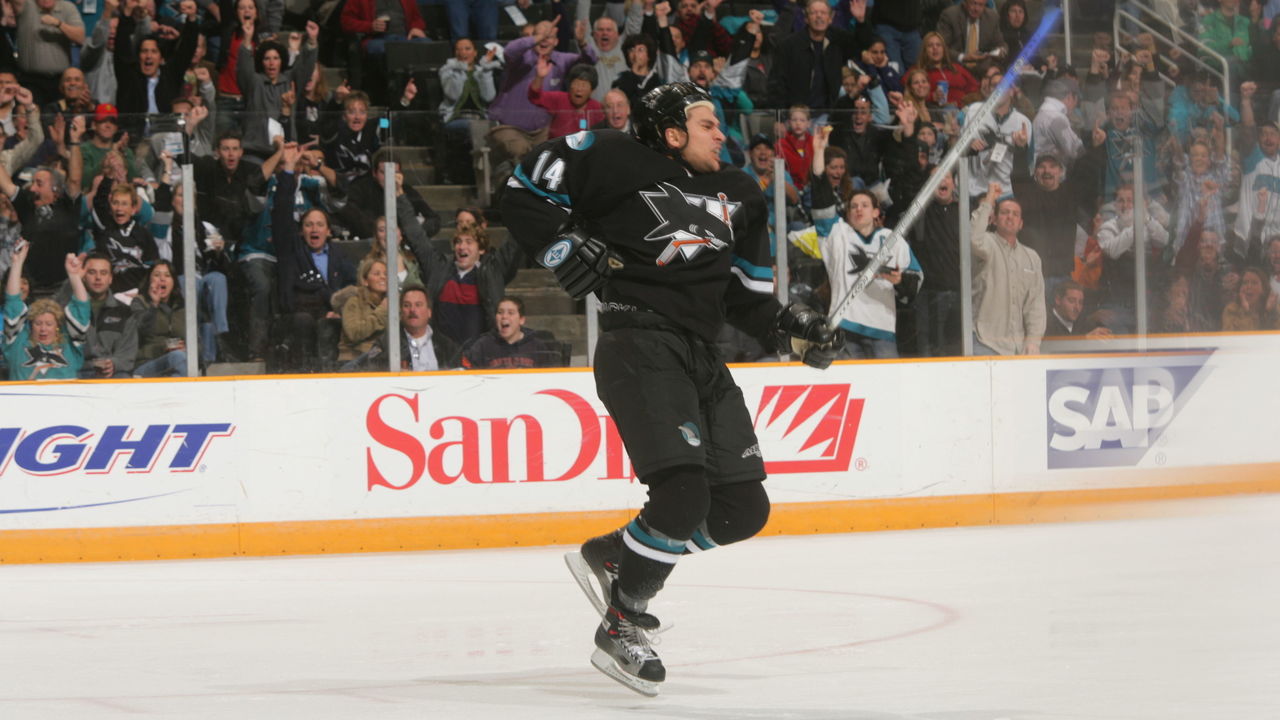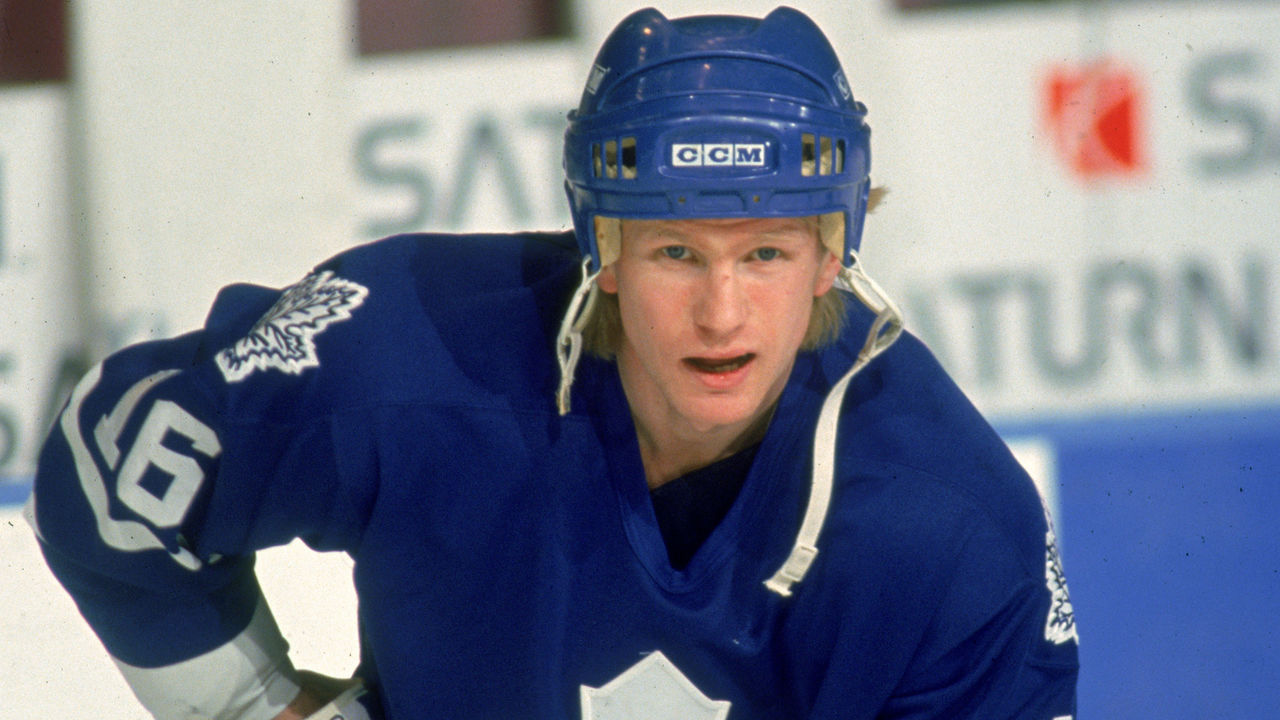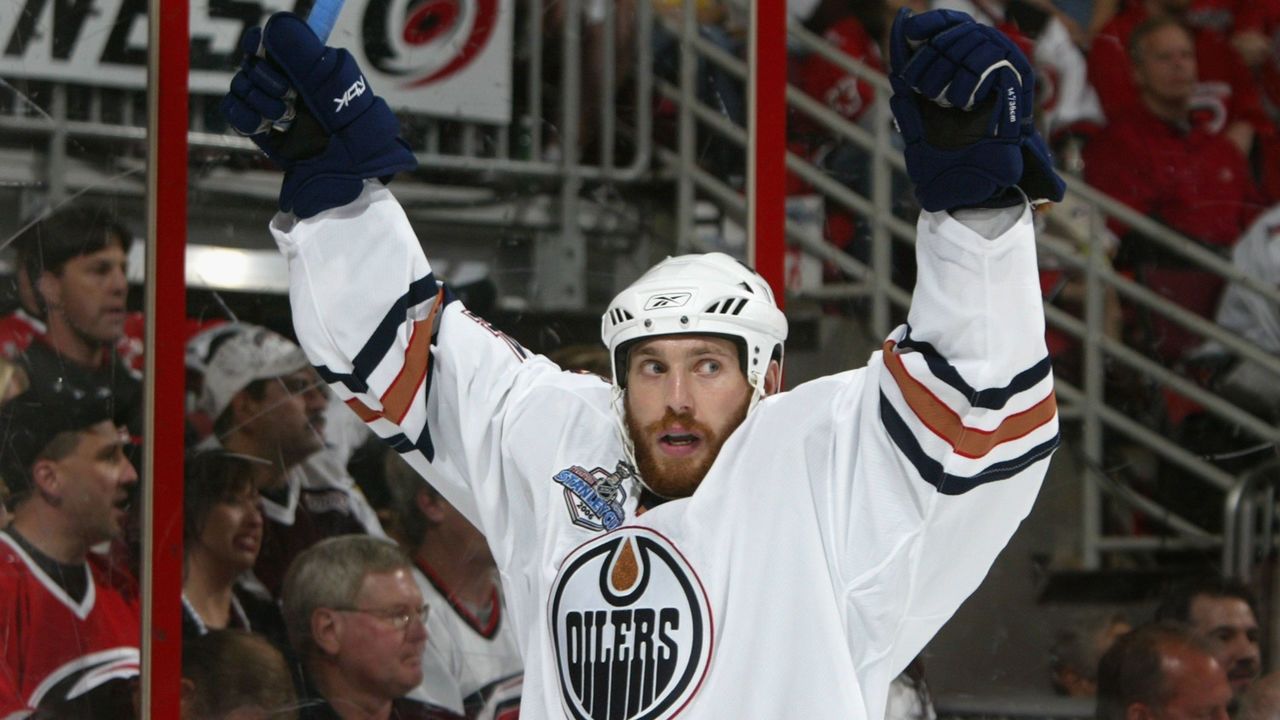10 one-hit wonders who briefly excelled in the NHL
More than a handful of NHL players have burst onto the scene with an elite season, or produced a terrific campaign that significantly outshined the rest of their career.
Each of these forwards, defensemen, and goaltenders looked like stars for a year before falling back down to earth.
Here are 10 players who put together one outstanding campaign but never reached that level of production again:
Jim Carey
Carey became known as "The Net Detective" by virtue of sharing a name with a certain Hollywood star who played Ace Ventura. The netminder debuted with the Washington Capitals not long after the film was released in 1994, winning the Vezina Trophy in 1995-96 after going 35-24-9 with a .906 save percentage, 12.68 goals saved above average, and nine shutouts across 71 games in only his second NHL season. He parlayed that performance into an ill-fated four-year, $11-million contract.
He had shown promise in his rookie year, going 18-6-3 with a .913 save percentage, but he made only 28 appearances in that lockout-shortened 1994-95 campaign. Carey also never came close to equaling his 1995-96 performance, and injuries caused his workload to steadily decline before he was out of the NHL by 1999.
Jonathan Cheechoo

Cheechoo had more than one solid NHL season, but none of them compared to 2005-06, when he amassed a league-best 56 goals to go along with 93 points while playing all 82 games for the San Jose Sharks.
Skating alongside elite playmaker Joe Thornton clearly aided his offensive explosion, as Cheechoo piled up 49 of those markers and 78 of those points in the 58 games that followed the Thornton trade. Cheechoo collected 37 goals and 69 points in 2006-07, but his production decreased in every season after 2005-06 until he played his final NHL game in 2010.
Andrew Raycroft
Raycroft arrived in style, winning the Calder Trophy after posting a .926 save percentage and a 24.24 GSAA across 57 contests with the Boston Bruins in 2003-04.
However, it was all downhill from there, as the goaltender struggled in the following campaign before the Bruins traded him to the Toronto Maple Leafs in the now-infamous Tuukka Rask deal in June 2006. Raycroft tied Toronto's record for wins in a season in 2006-07, but that was mainly because he played a whopping 72 games and recorded three shootout wins, which didn't exist before 2005-06. He allowed a league-high 205 goals in 2006-07 while authoring a GSAA of -22.02.
The netminder bounced around with a few more teams before his NHL career ended in 2011-12, and he ultimately played two campaigns in Europe before retiring.
Scott Bjugstad
The uncle of current Pittsburgh Penguins forward Nick Bjugstad poured in 43 goals and 76 points across 80 games in 1985-86 with the Minnesota North Stars, but never again managed more than 10 markers and 22 points. He collected only 33 markers and 35 assists in the 237 career games outside of his stellar season, landing with the Penguins and Los Angeles Kings before ending his career in the IHL.
Nikolai Borschevsky

Borschevsky played nine years in Russia before the Leafs drafted him at age 27 in 1992 on the strength of a couple of encouraging campaigns. The winger made an immediate impact, notching 34 goals and 74 points in 78 games while helping Toronto get to Game 7 of the Campbell Conference Final in 1993.
However, the wheels soon fell off, as Borschevsky produced 14 goals and 34 points across 45 contests in 1993-94 before managing just one marker and 13 helpers over 39 games in the next two seasons split between the Leafs, Calgary Flames, and Dallas Stars. He played his final NHL game at age 30 in November 1995.
Wayne Babych
The St. Louis Blues had high hopes for Babych after drafting him third overall in 1978, and the winger showed promise in his first two seasons, burying 27 and 26 goals, respectively, while collecting 63 and then 61 points. He busted out with 54 goals and 96 points in 1980-81, leading the NHL (including Wayne Gretzky and Mike Bossy) in even-strength markers with a remarkable 40.
However, Babych couldn't match that production in the following years, failing to surpass the 20-goal or 54-point marks, both of which he notched in 1984-85. His career was over by 1987.
Warren Young
One year before Bjugstad's outlier campaign, Young had a similarly surprising season in 1984-85, as the center piled up 40 goals and 72 points across 80 games for the Penguins. He hadn't played more than 15 games or scored more than a single marker in the three previous (albeit extremely abbreviated) campaigns, and his 22-goal output in 1985-86 was the closest he came to duplicating his one impressive season. Young was out of the league by 1988.
Fernando Pisani

Edmonton Oilers fans surely remember Pisani for his incredible playoff output in 2006. The depth player wasn't known for his scoring ability throughout his eight-year career, except for during that postseason, when he racked up a league-leading 14 goals in 24 games while helping the Oilers get to Game 7 of the Stanley Cup Final.
Pisani produced a career-high 18 goals during the regular season, but that was over an 80-game span. He never managed to replicate the offensive prowess he enjoyed that spring, and he played his final NHL game in 2011.
Brad Maxwell
Following a 47-point season as a rookie in 1977-78, Maxwell - a defenseman - failed to match that production until he exploded for 73 points across 78 games with the North Stars in 1983-84. However, he never came close to duplicating that success and was out of the league by 1987.
Doug Lidster
Lidster, another blue-liner, played 16 NHL seasons and twice hoisted the Stanley Cup. However, he barely played during either of those title runs (four games and only 32 minutes in the 1999 playoffs, and only nine games in the 1994 postseason). Lidster produced 343 points in 897 career contests, averaging only 21 points per campaign.
But something clicked for him in 1986-87 with the last-place Vancouver Canucks, as he poured in 51 assists and 63 points across 80 games. He hadn't broken 30 points beforehand, and a 38-point season in 1990-91 was the best he could do after his breakout.
HEADLINES
- McKenna has felony assault charge dropped, still faces other offenses
- Report: Maple Leafs seeking 1st-round pick for McMann
- Tkachuk, Hagel fight again as part of Battle of Florida brawl
- Jarvis replacing injured Point on Canadian Olympic team
- Panarin trade grades: Kings address pressing need, Rangers get antsy